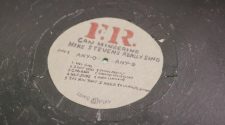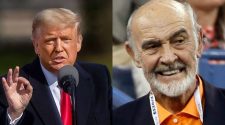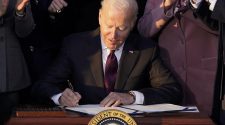LINCOLN (AP) — A Nebraska state fund that pays for children’s health insurance, aid for people with developmental disabilities and more than 20 other government programs is slowly losing money and eventually will be depleted because lawmakers are withdrawing too much from the account, according to several top state officials.
State officials said they’re concerned about the Nebraska Health Care Cash Fund, which covers the cost of a variety of programs, from compulsive gambling assistance to biomedical research.
“The Legislature keeps drawing more money out of it than what’s going in,” Republican Gov. Pete Ricketts said in a recent interview. “For long-term stability, you’re going to have to set priorities about what you’re going to spend money on.”
The fund holds money from Nebraska’s share of a 1998 settlement with tobacco companies as well as excess Medicaid dollars the state received under a federal program that was discontinued in 2005. State investment officials have warned in recent years that the $477.8 million fund faces a long-term risk and lawmakers are eating into its principal as well as the interest from its investment returns.
Nebraska State Investment Officer Michael Walden-Newman sent a memo to lawmakers in September warning that the fund will decline steadily unless spending is reduced. Walden-Newman predicted that, by 2035, the fund will be 80 percent of its current size, or 50 percent when adjusted for inflation.
Walden-Newman said the money from the fund already is invested aggressively and suggested that lawmakers cap their withdrawals at no more than $54 million annually. Nebraska distributed $62.9 million from the fund in the last fiscal year.
Sen. John Stinner, the chairman of the budget-writing Appropriations Committee, said lawmakers eventually may have to trim the fund if tobacco payments decrease, but he argued that it’s currently sustainable because settlement payments are flowing into the fund and replenishing it each year. Stinner said lawmakers will convene a hearing this fall to discuss the issue.
“We think (the tobacco settlement payments) may go down over a period of time, and we may have to adjust the fund in the future,” he said.
Ricketts said he was also concerned that the fund was being used for expenses other than what was originally intended. A 2018 report by the Campaign for Tobacco Free Kids found that states were spending just a small fraction of their tobacco settlement money on anti-smoking programs.
States collected $27.3 billion in revenue from the settlement in the fiscal year that ended in June, but spent only 2.4 percent of that amount on prevention and cessation programs, according to the report. Under the settlement, states had no restrictions on how they could spend the money, and many have used it to pay for unrelated programs or to plug budget holes.
Of the $62.9 million that Nebraska spent last fiscal year, about $2.6 million went to tobacco prevention programs, according to a September report from the Nebraska State Investment Council. The rest went to reimbursement rates for behavioral health care providers, children’s health insurance aid, public health centers and other programs.
The issue surfaced earlier this year when Nebraska lawmakers voted to pull an additional $500,000 a year from the fund to pay for community-based services for people with brain injuries. The chairwoman of the Health and Human Services Committee, which monitors many of the programs that receive health care cash fund money, said the proposal would worsen the problem for future lawmakers.
“We have got to stop taking that money,” Sen. Sara Howard, of Omaha, said during legislative debate. “It will not be there when we need it most.”
Supporters of the proposal argued that community-based services could ultimately save the state money by keeping people with brain injuries out of more expensive institutional care.
Howard said she would like to see the fund replenished by raising Nebraska’s 64-cent-per-pack cigarette tax.
















